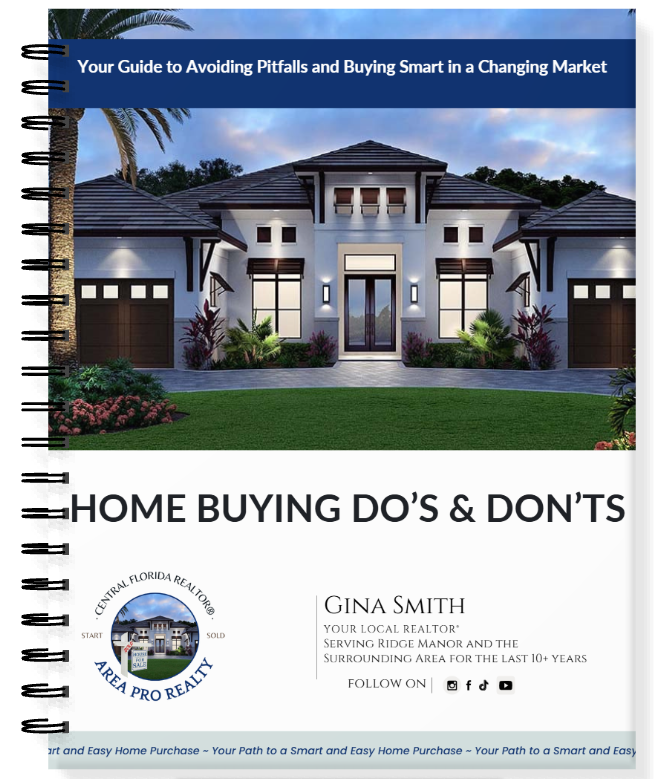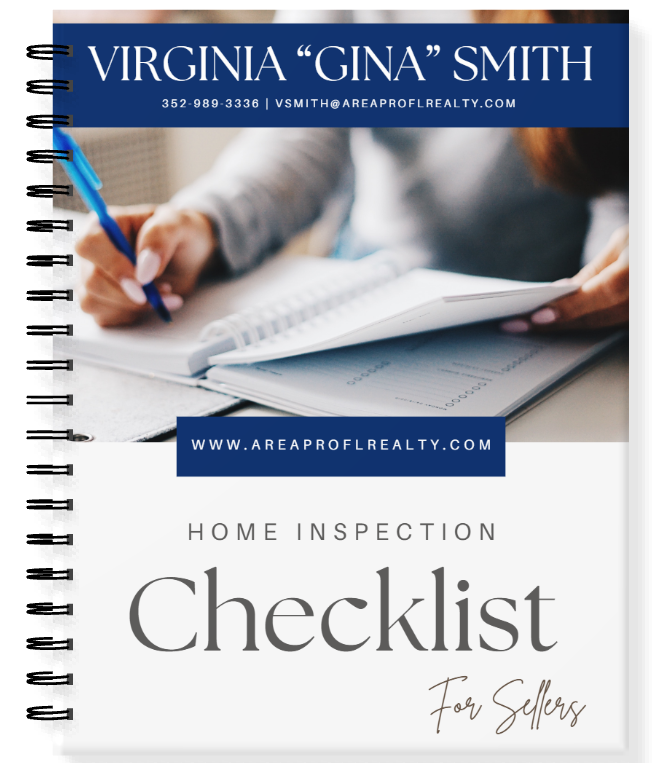
Central Florida Real estate (LIVE)
March 2025 TOP NEWS – CENTRAL FLORIDA
Stay informed and empowered. Discover the latest news, practical guides, and expert advice on a wide range of topics. From breaking headlines to insightful tips, we’ve got you covered.
Top News
Florida’s New Flood Disclosure Requirements:
A new law in Florida requires home sellers to disclose flood-related information to buyers. Effective October 1, 2024, sellers must reveal if they’ve filed flood insurance claims or received federal flood assistance. This applies to all residential real property transactions, including new construction and condominiums.
Key points of the new law:
Impact on buyers: The new disclosures will help buyers make informed decisions about potential flood hazards and the need for flood insurance.
Disclosure of flood claims and assistance: Sellers must disclose if they’ve filed a flood insurance claim or received federal flood assistance for the property.
Applicable to all residential transactions: The law applies to all residential real property transactions, including new construction and condominiums.
Definition of “flooding”: The law defines flooding as a general or temporary condition of partial or complete inundation caused by various factors, such as overflow of waters, runoff, or standing water from rainfall.
On October 1, more than 30 laws will take effect in Florida, including controversial HB 1365, a law that stops public camping.
Several new laws have gone into effect in Florida on October 1, 2024. These laws address various issues, including homelessness, retail theft, flood disclosure, and the protection of first responders.
Key points of the new laws:
- Homelessness: HB 1365 restricts public camping and sleeping on city streets, sidewalks, and parks.
- Retail theft: HB 549 increases penalties for retail theft and creates new offenses.
- Flood disclosure: HB 1049 requires sellers of residential real property to disclose flood-related information to buyers.
- First responders: SB 718 adds criminal penalties for exposing first responders to fentanyl.
- Other laws: Additional laws address issues such as tracking devices, specialty license plates, and nicotine dispensing devices.
These new laws aim to address various challenges and protect the safety and well-being of Florida residents. Here is a full list of Florida laws going into effect on Oct. 1:
HB 7043: OGSR/Agency Personnel Information
SB 86: Hope Cards for Persons Issued Orders of Protection
SB 92: Yacht and Ship Brokers’ Act
HB 341: Designation of a Diagnosis on Motor Vehicle Registrations
HB 403: Specialty License Plates
HB 479: Alternative Mobility Funding Systems and Impact Fees
SB 532: Securities
HB 549: Theft
SB 718: Exposures of First Responders to Fentanyl and Fentanyl Analogs
SB 758: Tracking Devices and Applications
SB 764: Retention of Sexual Offense Evidence
HB 801: Alzheimer’s Disease and Related Dementia Training for Law Enforcement and Correctional Officers
SB 808: Treatment by a Medical Specialist
SB 902: Motor Vehicle Retail Financial Agreements
HB 1007: Nicotine Dispensing Devices
SB 1036: Reclassification of Criminal Penalties
HB 1049: Flood Disclosure in the Sale of Real Property
HB 1171: Schemes to Defraud
HB 1235: Sexual Predators and Sexual Offenders
HB 1365: Unauthorized Public Camping and Public Sleeping
HB 1389: Digital Voyeurism
HB 1415: Peer Support for First Responders
HB 1545: Child Exploitation Offenses
SB 1628: Local Government Actions
HB 7001: OGSR/Reporter of Child Abuse, Abandonment, or Neglect
HB 7003: OGSR/Preregistered Voters
HB 7005: OGSR/Financial Disclosure
SB 7006: OGSR/Utility Owned or Operated by a Unit of Local Government
HB 7007: OGSR/Campus Emergency Response
SB 7008: OGSR/Department of the Lottery
HB 7009: OGSR/Mental Health Treatment and Service
Articles Worth Mentioning:
Should You Refinance Your Mortgage?
With the recent drop in mortgage rates, many homeowners are starting to consider refinancing their mortgages. And with the Federal Reserve expected to lower rates even further as we head into 2025, refinancing could become even more appealing.
According to the Mortgage Bankers Association, refinance applications jumped by nearly 60% this past August compared to the same time last year. This is especially true for those who bought homes when rates were above 7% in 2023. If you’re one of those homeowners, now might be the time to take a closer look at where rates stand today. That opportunity to refinance at a lower rate may now be open to you.
What Does It Mean to Refinance?
Refinancing means replacing your current mortgage with a new one, often to secure a lower interest rate or reduce your monthly payments. Some homeowners also refinance to shorten their loan term or to tap into home equity for big purchases or home improvements.
There are two main types of refinancing:
- No-cash-out refinance: The most common option, allowing you to secure a lower rate and possibly a better monthly payment. It’s also a good option for those looking to switch from an adjustable-rate mortgage (ARM) to a fixed-rate one.
- Cash-out refinance: If you’ve built up significant equity in your home, this option allows you to take out cash from your equity by refinancing for more than you currently owe. While this often means a higher mortgage rate, it can make sense if you need funds for home improvements or other major expenses.
Is Now a Good Time to Refinance?
The right time to refinance depends on your current loan and why you’re refinancing. Generally, if market rates fall below your current rate, refinancing can help you save money.
While rates on a 30-year mortgage have dropped to around 6.2%—the lowest in 19 months—they’re still higher than they were a few years ago. In fact, most homeowners (86%) have rates below 6%, according to Redfin, so refinancing may not make sense for everyone. However, if you bought a home recently when rates were higher, it could be a smart move to consider refinancing now.
Should You Wait for Rates to Drop Further?
With the Federal Reserve expected to cut rates multiple times before the year ends, some experts suggest waiting another six to nine months before refinancing. However, timing the market can be tricky, as mortgage rates are influenced by more than just Fed decisions. The risk in waiting is that there’s no guarantee rates will continue to drop.
What to Consider Before Refinancing:
- Your equity: If your home is worth less than you paid, refinancing may be difficult.
- Break-even point: Calculate how long it will take to recoup your refinancing costs. For example, if you save $100 a month on your mortgage and your closing costs are $5,000, it will take you 50 months to break even.
- How long you’ll stay in the home: Refinancing might make sense if you plan to stay long enough to recover the costs, but not if you’re selling soon.
- Your credit situation: If your credit score has dropped since you got your current mortgage, refinancing may not result in the lower rate you’re hoping for.
- Finding the best rate: Shopping around for lenders can save you money. There’s often a big difference between what different lenders offer.
Remember, you can refinance as often as you want, but each time comes with closing costs—typically around $5,000 on average. Orginial Article: https://www.floridarealtors.org/news-media/news-articles/2024/10/should-you-refinance-your-mortgage?utm_campaign=10-03-24+Florida+Realtors+News&utm_source=iPost&utm_medium=email
- She is the only guest speaker who is not being made available for media interviews. Continue Reading Kamala Harris to […]
- Last month, the overall delinquent balance was $39.3 billion, up from $36 billion in February. Continue Reading CMBS Delinquency Rate […]
- Nearly two-thirds of transactions (64.2%) were closed for less than their original list price. Continue Reading Report: 1 in 5 […]
- "The HGTV Smart Home inspires viewers with clever solutions that will enhance their lives and elevate their homes," said Loren […]
- Upon completion – which is scheduled for the 2027 academic year – Theory Ithaca will be comprised of 371 units […]
REAL ESTATE BLOG
BUYER AND SELLER RESOURCE HUB
With years of experience navigating the real estate market, I’ve collected invaluable insights and listened to what buyers and sellers truly need. That’s why I’ve created a comprehensive library of resources designed to guide you through every step of the journey. Whether you’re a seller wondering how to stage your home for maximum impact or a buyer searching for the right lender, you’ll find expert tips, guides, and tools to make the process smoother and more successful. Explore my extensive library and discover the support you need to achieve your real estate goals.

How to Find the Right Lender is your comprehensive guide to navigating the complex world of financing.


Buying a home is an exciting journey, but it’s important to approach it with the right mindset and preparation.


A Sellers Guide to a Buyers POINT OF VIEW. Checklist to prepare your home for Sale

LATEST NEWSLETTER OR MAGAZINE
FAQ’s for Buyers and Sellers
How your mortgage interest rate is determined
Mortgage and refinance rates vary a lot depending on each borrower’s unique situation.
Factors that determine your mortgage interest rate include:
- Overall strength of the economy — A strong economy usually means higher rates, while a weaker one can push current mortgage rates down to promote borrowing
- Lender capacity — When a lender is very busy, it will increase rates to deter new business and give its loan officers some breathing room
- Property type (condo, single-family, townhouse, etc.) — A primary residence, meaning a home you plan to live in full time, will have a lower interest rate. Investment properties, second homes, and vacation homes have higher mortgage rates
- Loan-to-value ratio (determined by your down payment) — Your loan-to-value ratio (LTV) compares your loan amount to the value of the home. A lower LTV, meaning a bigger down payment, gets you a lower mortgage rate
- Debt-To-Income ratio — This number compares your total monthly debts to your pre-tax income. The more debt you currently have, the less room you’ll have in your budget for a mortgage payment
- Loan term — Loans with a shorter term (like a 15-year mortgage) typically have lower rates than a 30-year loan term
- Borrower’s credit score — Typically the higher your credit score is, the lower your mortgage rate, and vice-versa
- Mortgage discount points — Borrowers have the option to buy discount points or ‘mortgage points’ at closing. These let you pay money upfront to lower your interest rate
Remember, every mortgage lender weighs these factors a little differently.
To find the best rate for your situation, you’ll want to get personalized estimates from a few different lenders.
Are refinance rates the same as mortgage rates?
Rates for a home purchase and mortgage refinance are often similar.
However, some lenders will charge more for a refinance under certain circumstances.
Typically when rates fall, homeowners rush to refinance. They see an opportunity to lock in a lower rate and payment for the rest of their loan.
This creates a tidal wave of new work for mortgage lenders.
Unfortunately, some lenders don’t have the capacity or manpower to process a large number of refinance loan applications.
In this case, a lender might raise its rates to deter new business and give loan officers time to process loans currently in the pipeline.
Also, cashing out equity can result in a higher rate when refinancing.
Cash-out refinances pose a greater risk for mortgage lenders, so they’re often priced higher than new home purchases and rate-term refinances.
How big of a down payment do I need?
Nowadays, mortgage programs don’t require the conventional 20 percent down.
In fact, first-time home buyers put only 6 percent down on average.
Down payment minimums vary depending on the loan program. For example:
- Conventional home loans require a down payment between 3% and 5%
- FHA loans require 3.5% down
- VA and USDA loans allow zero down payment
- Jumbo loans typically require at least 5% to 10% down
Keep in mind, a higher down payment reduces your risk as a borrower and helps you negotiate a better mortgage rate.
If you are able to make a 20 percent down payment, you can avoid paying for mortgage insurance.
This is an added cost paid by the borrower, which protects their lender in case of default or foreclosure.
But a big down payment is not required.
For many people, it makes sense to make a smaller down payment in order to buy a house sooner and start building home equity.
Choosing the right type of home loan Breakdown
No two mortgage loans are alike, so it’s important to know your options and choose the right type of mortgage.
The five main types of mortgages include:
Fixed-rate mortgage (FRM)
Your interest rate remains the same over the life of the loan. This is a good option for borrowers who expect to live in their homes long-term.
The most popular loan option is the 30-year mortgage, but 15- and 20-year terms are also commonly available.
Adjustable-rate mortgage (ARM)
Adjustable-rate loans have a fixed interest rate for the first few years. Then, your mortgage rate resets every year.
Your rate and payment can rise or fall annually depending on how the broader interest rate trends.
ARMs are ideal for borrowers who expect to move prior to their first rate adjustment (usually in 5 or 7 years).
For those who plan to stay in their home long-term, a fixed-rate mortgage is typically recommended.
Jumbo mortgage
A jumbo loan is a mortgage that exceeds the conforming loan limit set by Fannie Mae and Freddie Mac.
In 2024, the conforming loan limit is $726,200 in most areas.
Jumbo loans are perfect for borrowers who need a larger loan to purchase a high-priced property, especially in big cities with high real estate values.
FHA mortgage
A government loan backed by the Federal Housing Administration for low- to moderate-income borrowers. FHA loans feature low credit score and down payment requirements.
VA mortgage
A government loan backed by the Department of Veterans Affairs. To be eligible, you must be active-duty military, a veteran, a Reservist or National Guard service member, or an eligible spouse.
VA loans allow no down payment and have exceptionally low mortgage rates.
USDA mortgage
USDA loans are a government program backed by the U.S. Department of Agriculture. They offer a no-down-payment solution for borrowers who purchase real estate in an eligible rural area. To qualify, your income must be at or below the local median.
Bank statement loan
Borrowers can qualify for a mortgage without tax returns, using their personal or business bank account. This is an option for self-employed or seasonally-employed borrowers.
Portfolio/Non-QM loan
These are mortgages that lenders don’t sell on the secondary mortgage market. This gives lenders the flexibility to set their own guidelines.
Non-QM loans may have lower credit score requirements, or offer low-down-payment options without mortgage insurance.